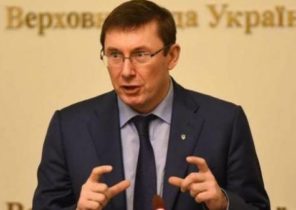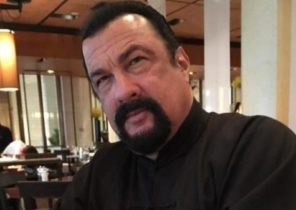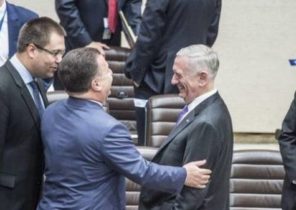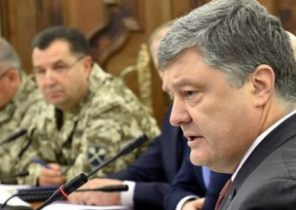
In recent years, many write about how Russia is “hacked” the American presidential election and launched a new cold war with the West.
Molly McCue (Molly Mckew), advising Mikhail Saakashvili, when he was the President of Georgia, claims that the West is fighting for the values that underpin a liberal order. However, she, like many others, does not attempt to define what “the West” and what are his (highly controversial) interests. Lilia Shevtsova, in his article in The Financial Times shows even greater pessimism. In her view, the current situation has no precedent in history. Although Western strategy “requires ideological clarity, ambivalence emerged after the cold war the world makes this strategy not applicable”, she said.
In the English press every day many such articles. All of them are United by the characteristic bias and inadequacy. Their authors pretend that what is happening now is historically unprecedented — and this is clearly the incorrect diagnosis, contributing to hysteria and panic.
They also ignore trends, which was subordinated to the Russian foreign policy after the collapse of the Soviet Union, and instead focus on the personal qualities of Vladimir Putin. Meanwhile, the forces acting in international politics, much more important than the activity of any particular leader.
When the Soviet Union collapsed, the Russian foreign policy have lost their landmarks. Without organizing principles of Soviet communism, Russian leaders could not articulate a single coherent strategy. While they for years had to overcome internal conflicts caused by the struggle for power, the various crises and the consequences of the economic collapse. As a result of their foreign policy at first glance seems chaotic, but despite this, it is easy to identify certain patterns. In essence, we are talking about a series of short phases of close cooperation, alternating long phases of frustration and confrontation.
At its first post — Soviet leader, Boris Yeltsin — Russia has become much more Atlanticist, has liberalized its economy and began to participate in the global democratic order. The country at this time was on the verge of economic and military collapse, so the Yeltsin government considered it necessary rapprochement with the West. However, by the mid-1990s, years of economic crisis, the first war in Chechnya and the impact of anti-liberal forces in domestic politics has forced the government to re-turn away from the West.
However, even at this stage Russia was much weaker than their Western rivals from an economic and a military point of view. Therefore, although it protested against the joint operations of Europe and the United States in the Balkans, she had to silently put up with Western hegemony in Europe.
The second short phrase cooperation began in around 2001. Russia at that time was in the second Chechen war. The consequences of the September 11 attacks contributed to tactical cooperation between the U.S. and Russia in Central Asia. However, over time the relationship soured because of the American invasion of Iraq and the “color revolutions” in Eastern Europe that the Russian government perceived as a direct threat to its existence. Further cooling between the parties contributed to the sharp criticism the full speech Putin said in 2007 in Munich. In 2008, when Russia invaded Georgia, its relations with the West finally oledeneli.
This cycle continues until now. Although the ill-fated “reset” proposed by the Obama administration, promised some form of collaboration, in the end it led only to new cooling, which we can observe now. However, despite the intimidating nature of Russia’s actions — in particular, on its almost continuous attempts to influence the internal politics of European countries and the United States — the danger it poses, as well as the singularity of her conduct grossly exaggerated.
At the moment, Russia looks relatively weak in almost all respects, which made to evaluate the greatness of States. Demography is still in decline, and its economy is too dynamic and too dependent on a few industries. In addition, it significantly lags behind the West in technological innovation.
Although Russia has recently achieved some military successes in the East of Ukraine and in Syria, a full exit strategies of these conflicts, it does not. They obviously delayed and too expensive for the country, and Islamist terrorism, directed against Russia seems to have become commonplace. Russian military operations besides often look too harsh, and they are typical annoying failures, even in cases where Russia is not necessary to counter organized national army and air force.
As for the alleged unprecedented intervention of Moscow in the Affairs of other countries on the planet, of course, there is not a great power, which at some point would not try to influence foreign or domestic policy to spy even on their allies. So do all of the great powers — at least since the war between Athens and Sparta.
How successful were the efforts of Russia in this area is debatable, but even if it reached its own — rather bizarre — goals, it only means that the US and Europe have not coped with the situation. Therefore, it is much more important than the question of the extent to which intersect the real interests of the West and Russia.
In recent years the strategy of the West was based on the idea that it needs to distribute, promote and uphold the “values” rather than narrow geo-strategic interests. This strategy looks completely unrealistic, as it requires that the West resisted at the same time Russia and China and somehow stabilized the middle East and spread democracy around the world. Meanwhile, none of the great powers in history, including the Soviet Union at the height of his power, even not come close to global hegemony. Any hope to achieve it — a deplorable stupidity.
Now in the West, the prevailing tendency to reduce costs. As demonstrate public opinion polls, European citizens have long tired of the endless attempts of their leaders to stabilize the chaotic middle East on the taxpayers ‘ money. Now they are starting to get tired and against attempts of their governments to interfere in what Russia does in its own “area”.
We clearly need a change. Realism demands that the West treated Russia as tending to the decline of a great power — that is, with patience, with care and with respect to its sphere of influence. In addition, he demands that the West has defined what it is and what are its key interests. While he does not, he will be doomed to clashes with other great powers, as it is vague, “values-based” interests and Alliance commitments necessarily will overlap with their interests and obligations.
Instead of panic and to perceive any threat as existential, Western governments should remember, looked like international politics in the era of the real cold war. At the end of the Soviet Union, George H. W. Bush — probably the last true realist, who held the post of the us President, has refused to intervene in what was happening in Eastern Europe. He understood that the Soviet Union was doomed and that to US the most reasonable — to act with a long-term perspective. He regularly waited until the Eastern bloc doesn’t fall apart on their own, and waited for this.







